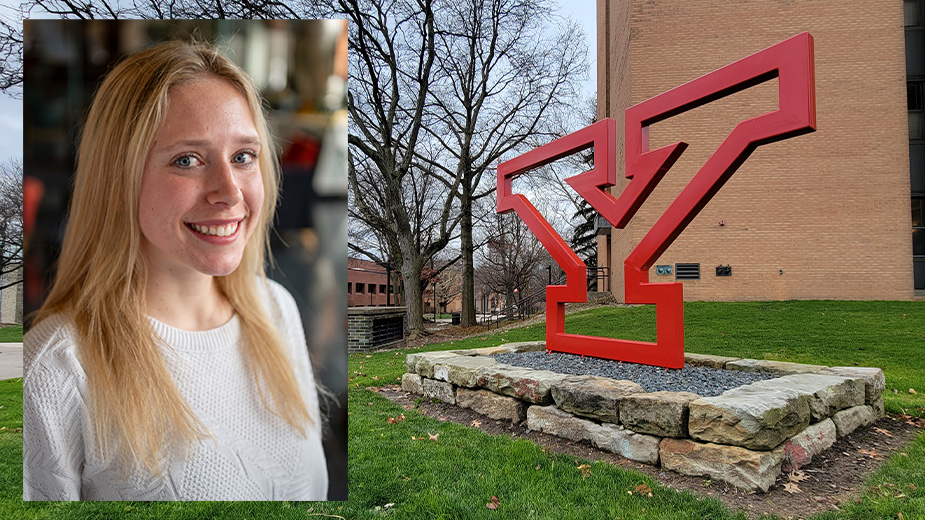Brain Gain: Virtual Career Fair Features YSU IT Director
YOUNGSTOWN, Ohio – Educational requirements for a career in IT are flexible and range from a high school graduate with some experience walking into an entry level job to further training that can skyrocket job growth and earning potential, according to Ryan Geilhard, director of IT infrastructure services at Youngstown State University.
Geilhard was a guest speaker Tuesday for Mahoning County Educational Service Center’s Virtual Career Exploration Tour.
After schools were closed because of the coronavirus, career counselors from the educational service center replaced the tour that took students from multiple school districts to businesses and worksites with virtual chats with area professionals.
The tour continues through Friday for students in grades seven through 12 with one-hour video calls with local business, educational, community and political leaders highlighting respective careers. Others tour topics this week include plumbers and pipefitters, health-care careers as a chiropractor, nurse practitioner and dentistry, as well as culinary careers and construction.
“Many of those represented on our virtual tour were scheduled to be stops on our in-person tour, but by going virtual we were also able to expand to more students and more presenters,” said Robert Eggleston, lead career counselor for Mahoning County Educational Service Center.
Careers in IT are one of the fastest growing and in-demand sectors in northeastern Ohio, according to regional economic development study by Team NEO.
That career option also was true for Geilhard nearly 20 years ago. He was a student at Mathews High School when he opted to attend Trumbull County Career and Technical Center before going to Kent State University at Trumbull. He eventually earned a master’s in business administration from Youngstown State University.
He said a high school graduate with some technical experience can walk into an entry level IT job and earn a good wage.
“If you continue with any other education after high school such as a trade school or certification program or certainly two- or four-year degree, your growth and earning potential just skyrockets,” Geilhard said.
Geilhard talked to students about the positives and some of the negatives of a career in an IT-related field. Students engagement was positive with several questions, ranging from what the different areas of IT are to camps that teach IT-related skills.
“You are never going to be done learning. Keeping up with any job field truly is a lifelong endeavor. I say especially IT because technology changes so quickly. You can’t think of it as reaching a plateau and know what there is to know for the rest of your life,” Geilhard says.
Geilhard also stressed the importance of soft skills, or what he called emotional intelligence. He referred to an article he read stating that emotional intelligence is one of the most sought after job skills by hiring agents.
“For example, you could have the most technical and the most intelligent employee who can do anything from writing programs to inventing products, but if they can’t communicate well with others, they’re going to be so limited in what they can accomplish because of the interaction that’s necessary with other stakeholders, ”Geilhard said.
However, he countered that someone who lacks technical skills but is a good communicator is useful, but not as effective as someone who has both skillsets.
“Basically they can walk the talk which lends itself to that employee’s credibility when they have both those skills and balances,” he said. “I encourage you to be that student right now to be that employee in the future that strives for both hard and soft skills.”
He also suggests for students to volunteer, to be flexible, open minded and look for opportunities to learn things.
“I promise you that if you build relationships now and simply do ordinary things better than anyone else you will definitely be successful and you will make a very good living in any career that you do,” he said.
Infrastructure to most people relates to transportation like airports, subways, IT borrowed that term in regard to transporting data via network, cables, fiber optic lines, Wi-Fi and more.
On YSU’s campus, the school’s infrastructure fuels the internet for faculty and students, giving them access to applications, video stream, devices and teaching tools, especially with distance learning.
When the state shut down schools because of the coronavirus outbreak, universities followed suit, moving instruction to long-distance learning. He admitted it was very stressful, but also rewarding to see what could be accomplished in a short period of time.
“With about a 13-day notice, we took almost all 2,700 classes offered at YSU, and we worked pretty much around the clock trying to get those ready for long-distance learning. We really were able to pull off something that should have taken months, if not a year to do,” Geilhard said. “We did it in a matter of two weeks. It wasn’t perfect and it wasn’t pretty at times but we got the core part done and we’re still working to fine tune that.”
Copyright 2024 The Business Journal, Youngstown, Ohio.



